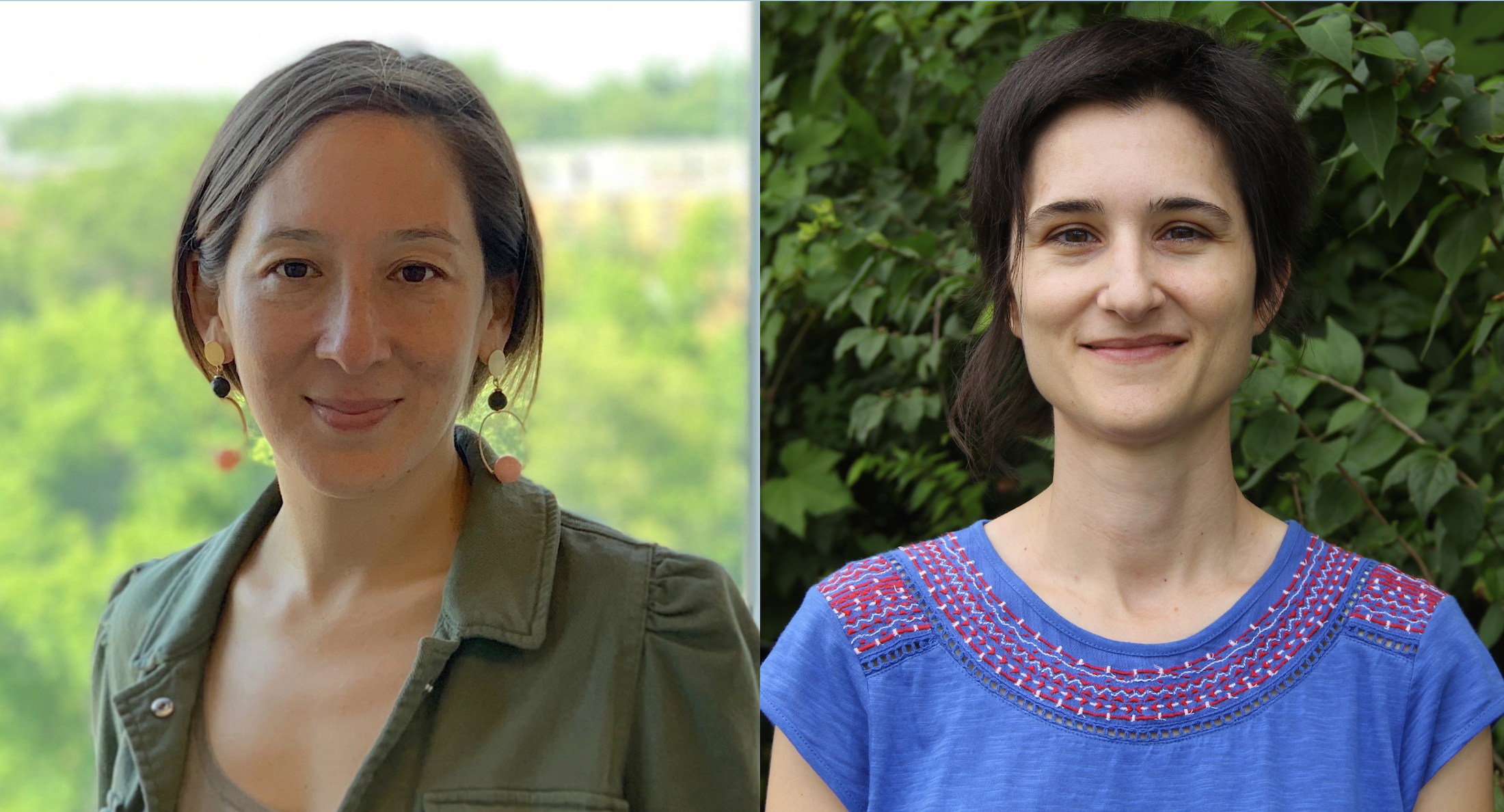
Two faculty members in the University of Maryland Institute for Advanced Computer Studies (UMIACS) are part of a new program that supports up-and-coming researchers on the University of Maryland campus.
Marine Carpuat (left in photo), an associate professor of computer science, and Vanessa Frias-Martinez (right), an associate professor in the College of Information Studies (iSchool), are amongst the first group of 18 UMD faculty selected this fall for the Research Leaders Fellow Program.
The program, run by the university’s Division of Research, is designed to assist recently-tenured associate professors as they expand their impact in their respective scientific fields, while also providing them with the leadership skills needed to compete for large-scale multidisciplinary awards.
“This program is timely, because we’re at a critical juncture for public universities in general, and these researchers are at a critical point in their careers,” says UMD Vice President for Research Laurie Locascio. “The breakthroughs related to many of the most difficult challenges in our world today—COVID-19, racism, climate change—will come at the intersection of different research disciplines, and the convergence of many ways of thinking.”
The research fellows group, comprised of faculty from every school and college on campus, began meeting in early November; current senior UMD researchers will mentor the fellows as they learn to combine their expertise and approach scientific and societal problems in novel ways.
Carpuat, whose research areas are multilingual natural language processing and statistical machine translation, says she is honored to be part of the inaugural cohort.
“I am hoping the program will help increase the impact of my research by developing interdisciplinary projects toward technology that helps people communicate across language barriers,” she says. “The first meeting, where President Pines talked to us about his research and leadership trajectory, was already very inspiring, and I am excited to get to know the other fellows better.”
Frias-Martinez, whose research is focused on data-driven behavioral modeling and spatio-temporal data mining, says she is also excited to participate in the program.
“I am honored to be part of this inspiring group of scholars, and I’m looking forward to improving the skills I need to succeed in putting together collaborative initiatives with high societal impact,” she says.
In addition to their appointments in UMIACS, both Carpuat and Frias-Martinez are part of the Computational Linguistics and Information Processing (CLIP) Laboratory.